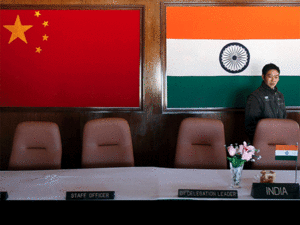 These restrictions can at best be annoying for China since its exports to India account for only 2 per cent of its total exports. Yet, these restrictions will serve as a warning to China, indicating India's hardened posture. The Doklam conflict has raised India's apprehensions about China's hidden motives.
These restrictions can at best be annoying for China since its exports to India account for only 2 per cent of its total exports. Yet, these restrictions will serve as a warning to China, indicating India's hardened posture. The Doklam conflict has raised India's apprehensions about China's hidden motives.
Below are a few items/sectors where India has restricted Chinese imports.
Toys
Toy imports from China have dropped to less than a half, according to industry estimates, since the government introduced tough quality criteria and mandated certification of compliance by accredited agencies from September 1.
A notification issued by Director General of Foreign Trade on September 1 prescribed criteria for physical and mechanical properties, chemical content, flammability, and testing for indoor and outdoor toys for both electrically and mechanically operated ones. The notification said import of toys would be permitted freely only if the manufacturer abided by the Bureau of Indian Standards benchmarks. Chinese toys account for an estimated 70 per cent of India’s Rs 5,000-crore toy industry.
Tempered glass
India has imposed anti-dumping duty also on tempered glass, which is used for protecting mobile phone screens, from China for five years to protect the domestic industry from below-cost imports. Investigations by the Directorate General of Anti-Dumping and Allied Duties (DGAD) had found that tempered glass had been exported to India from China below its associated normal value. Also, it concluded that domestic industry had suffered material injury which was caused by the dumped imports of the goods from China.
Tyres
Anti-dumping duty has been imposed on import of certain type of radial tyres used in buses and trucks to protect domestic manufacturers from below cost shipments from China for five years. Automotive Tyre Manufacturers’ Association had filed an application on behalf of the domestic producers and had demanded investigation in dumping of tyres. The government said the domestic industry had suffered material injury on account of the imports from China. It found that the tyres had been exported to India from the subject country “below normal value”.
Power
Chinese firms are on target in the power sector too. The Central Electricity Authority (CEA) recently prepared a report in which it set new conditions for firms bidding for power transmission contracts, tipping the scales in favour of local companies. Power sector is dominated by Chinese firms such as Harbin Electric, Dongfang Electronics, Shanghai Electric and Sifang Automation which supply equipment or manage power distribution.
A high-level panel will look at possible checks on foreign firms investing in the Indian power sector, a move aimed at preventing cyber attacks on the electricity grid. This comes about two months after the eastern electricity grid suffered a malware attack, allegedly from China.
Overseas firms eyeing investments in power plants in the country may have to undergo security clearances and may be mandated to employ majority Indian nationals including at top managerial positions, a senior government official said. The panel will consider the recommendations that CEA made.
Telecom
In August, the Ministry of Electronics and IT directed 21 smartphone makers, most of which are Chinese, to inform it about the procedures and processes they follow to ensure the security of mobile phones sold in India, following reports of data leakage and theft The government officials didn’t directly link the government move to India’s latest border tensions with China, but industry insiders noted the move came amid continuing standoff between the two nations’ armies at Dokalam. Also, there is rising concern over imports of IT and telecom products from China on the grounds that much of it may be used to gain unlawful access to critical information with many Chinese manufacturers having their servers in their home country.
No comments:
Post a Comment